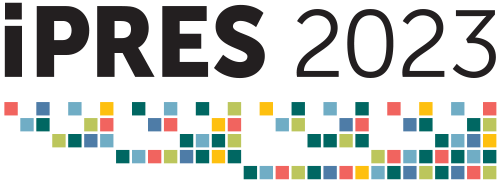Title: The valorizing of the Tunisian radio archive
Author(s): Sami Meddeb
Abstract: After the revolution of 2011, resources for archival institutions in Tunisia became very limited for various complex political reasons. The Covid pandemic has made the situation even more unstable, especially for small organizations such as radio stations that need special attention because of their rapidly deteriorating carriers, and the obsolescence of the machines needed to play or transfer the materials.
Shortfalls in financial and logistical resources continue to pose a major challenge for archives, causing difficulties as they strive to conserve crucial historical and cultural artifacts. As digital technology develops, archives must transition from analog to digital formats.
This is necessary in order for these materials to be accessible to the public. Traditional archiving procedures are becoming increasingly challenging due to high volumes of data. But, solutions such as the Open AI Platform exist because of artificial intelligence (AI) and can help with archival tasks. Archiving can be made more cost-effective and efficient by utilizing this technology, potentially resulting in lower costs, increased efficiency, and increased access to cultural and historical items.
AI-based technology offers numerous advantages such as the automation of filing and categorization processes, the usage of indexing and tagging methods, and the enhancement of images, audio, and video.
Utilizing AI strategies ensures efficient and high-quality results in relation to archive analysis and management contributing positively towards making cultural and historical items available for research and education purposes.
Our research focuses on exploring the potential of AI to automate certain archiving tasks in Tunisian community radio stations and more specifically Radio Elyssa which is located in the south of the country and how this could benefit its archives of types of assets, thus contributing to the preservation and access of important cultural and historical records. By focusing on the impact and potential benefits of this research, we can better understand its importance and relevance.
Type: Short Paper
————————————-
Title: Digital Records Curation at the East and Southern African Universities Institutional Repositories (IRs)
Author(s): Tshepho Lydia Mosweu and Juliet Awinja Erima
Abstract: Most of the knowledge generated in academic institutions today is in digital form. Given that institutional repositories (IRs) across universities receive, preserve and make access to digital assets. The aim of this study is to assess the status of digital curation at Institutional repositories in selected Universities in Botswana and Kenya. The study takes a quantitative approach whereby data was collected through survey questionnaires administered amongst university IR staff in Botswana and Kenya. The data collected was analysed and presented with tables and figures. The Open Archival Information System (OAIS) Functional Model was used in this study as a lens to investigate the problem. The findings of the study show that public universities in Botswana and Kenya have established IRs that ingest digital records into their custody. Most resources ingested include thesis and publications by academic staff and students. These IRs store their digital records on local servers and other storages like CDs. This study found that the majority of the IRs both in Botswana and Kenya do not have digital records preservation plans. This study recommends the use of the OAIS model to preserve, manage and make access to digital records at East and Southern African public Universities Institutional Repositories.
Type: Short Paper
————————————-
Title: Digital Preservation and Accessibility of Archives in Oman: Current Status and Future Directions
Author(s): Ahmed Shehata and Abderrazak Mkadmi
Abstract: Digital preservation significance is widely recognized and imperative for all institutions. It is a pressing concern for archival specialists who acknowledge its relevance and necessity in contemporary information management practices.
The current paper aims to examine the present state of digital preservation and Accessibility of institutional archives in Oman and to ascertain the challenges and prospects in this domain. This research is conducted through a comprehensive analysis of the extant literature and semi-structured interviews with administrative personnel employed in both public and private institutions in Oman. Semi-structured interviews were conducted with ten professionals in governmental organizations, who were chosen based on their expertise and experience in the field, using purposive sampling.
The findings showed that interviewees in Omani institutions value digital preservation for many reasons, such as compliance with Omani law on archives, improved organization and security, and ease of document access. However, all institutions have no unified application strategy for digital preservation. The findings revealed many challenges, including technological obsolescence, security risks, big data management, and human resource challenges.
Type: Long Paper
Event Timeslots (1)
Friday, September 22
-
DA-3
